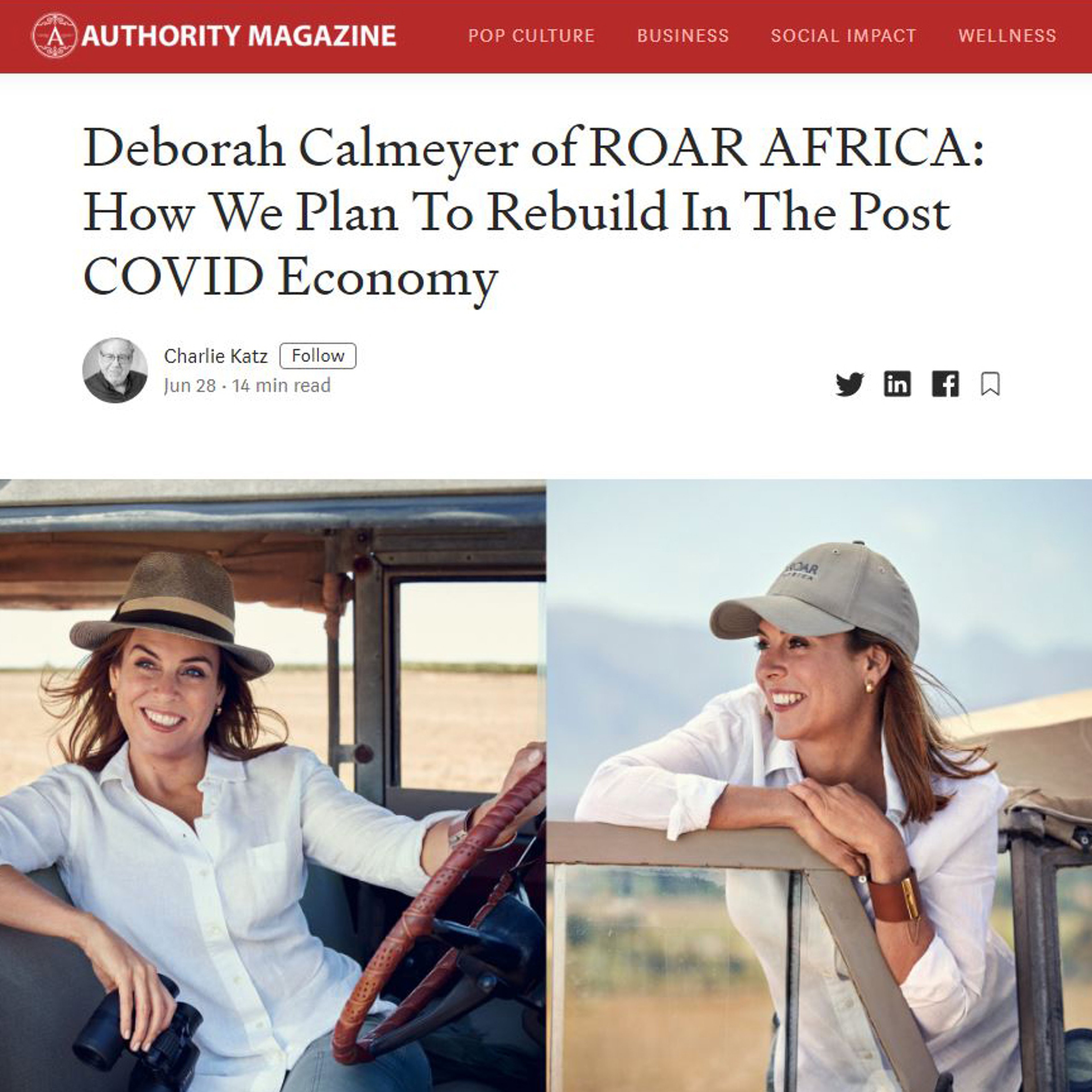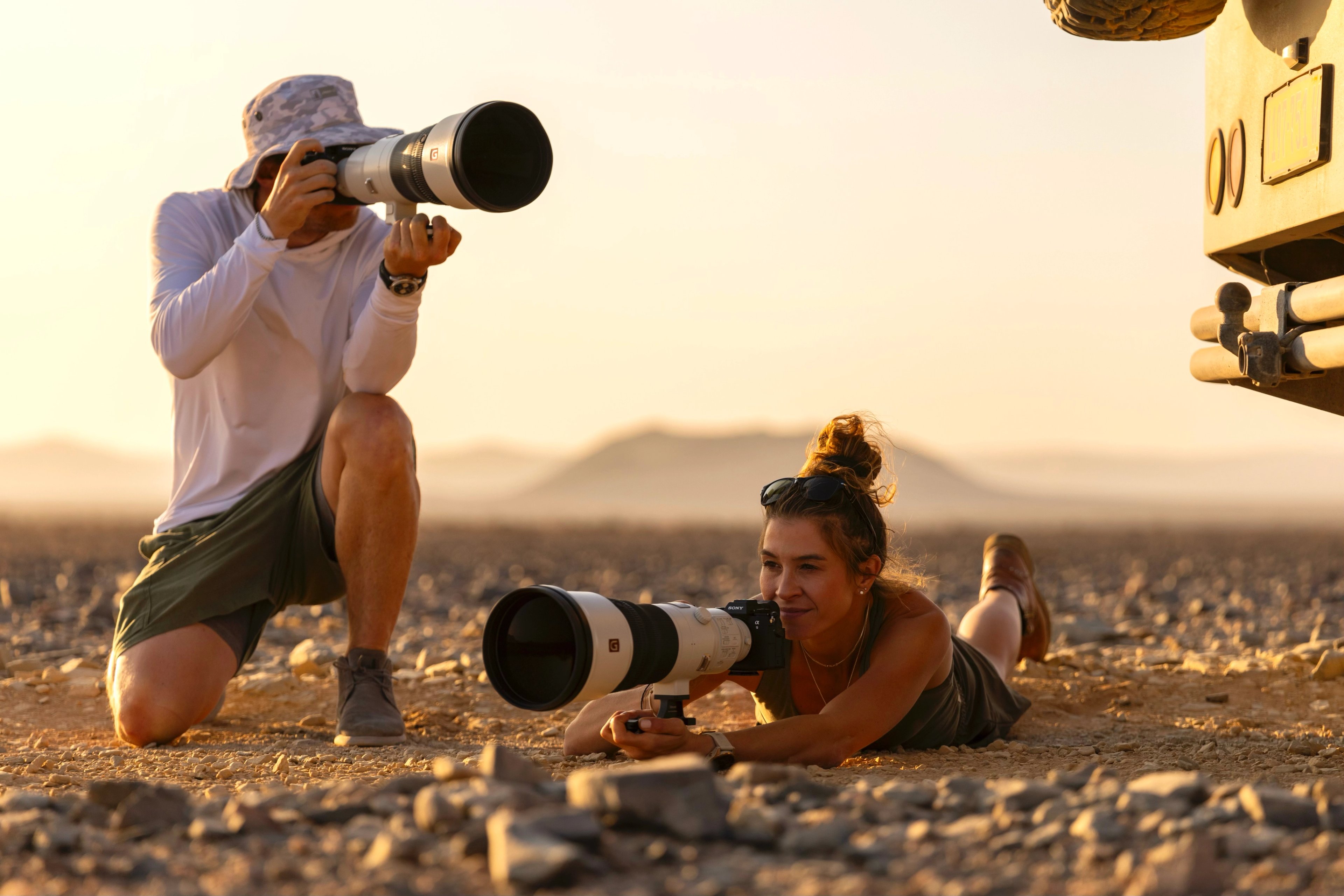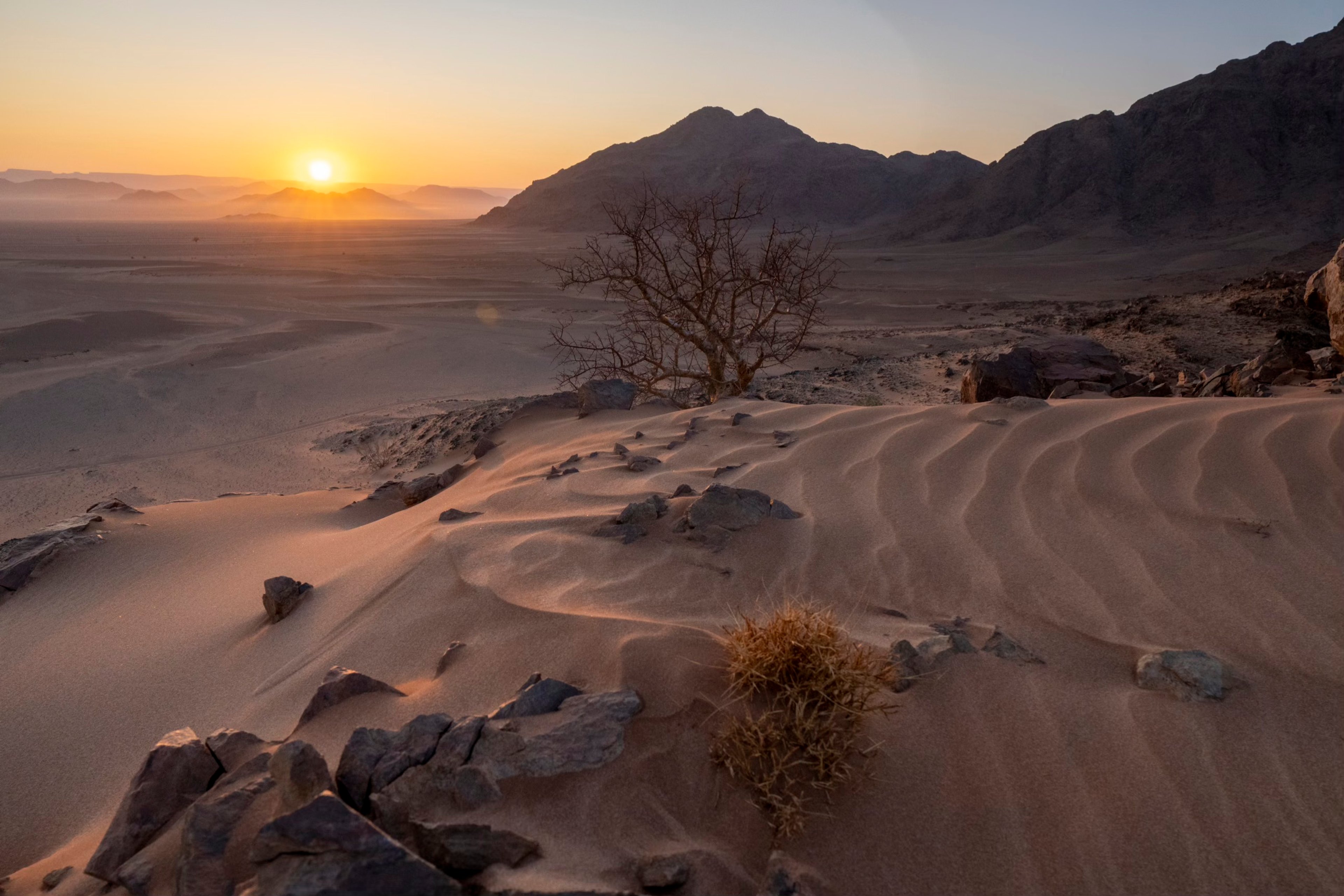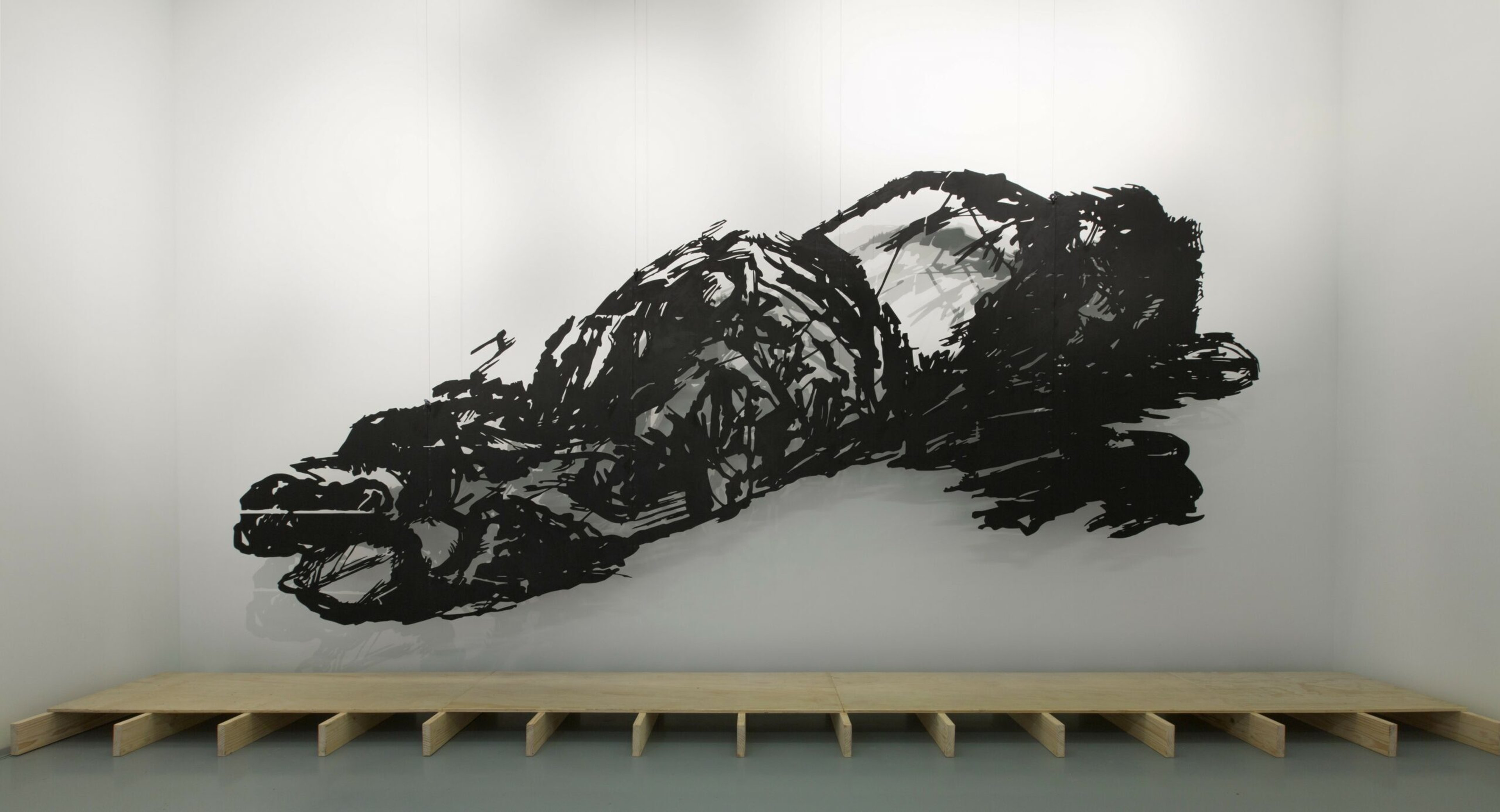... I hope we will consider where we go, how we get there, and what impact we have when we arrive. It is also my wish that people treasure the new friends and relationships they have, and come to realize that so much of who we are is shaped by where we have been and who we have met along the way.

As part of Authority Magazines series about the “How Business Leaders Plan To Rebuild In The Post COVID Economy”, Charlie Katz had the pleasure of interviewing Deborah Calmeyer.
New York and Cape Town based Deborah Calmeyer is the founder and CEO of the esteemed ultra-lux experiential travel company ROAR AFRICA. Living between New York and Cape Town for the past twenty years has given the Zimbabwe-born entrepreneur a profound understanding of the needs and desires of discerning American travelers.
Deborah was trained as a child in what she calls “the etiquette of old times,” when traditional manners and old-fashioned rules were the order of the day. They lived on the side of a mountain, with views of crops, cows, horses, and magnificent Zimbabwean countryside. Both of her parents spent a lot of time in the African bush, seeding in Deborah a deep commitment to the preservation and support of the people, animals, and environment of her fragile and extraordinary homeland.
In 2005, Deborah created ROAR AFRICA, a New York company run primarily by women, supported by native-born guides and a curated network of experts based predominantly in Africa. The company is known for providing exceptional and exclusive insider access (frequently built upon Deborah’s lifelong relationships in Africa), coupled with an extraordinary dedication to making every detail perfect to ensure a seamless and uncomplicated experience from the moment clients step off the plane.
Deborah is inquisitive and cultured, with her finger on the pulse. She is a highly respected specialist in the industry and constantly seeks out — and creates — impeccable experiences in food, culture, and the arts, as well as on safari. On safari, humans seem transformed, and in exploring how and why this is, ROAR AFRICA developed the Rewilding Experience — a deeper submersion into the human epiphanies while in the bush. Another industry first is the annual Women’s Empowerment trip designed to start “a revolution” in the safari industry. Her motto “If African women rise, wildlife will thrive” is driving the conversation to ensure that women who have hospitality in their DNA have an equal seat at the male-dominated safari table.
With her eye on helping Africa and Africans at all times, Deborah gives back to her homeland through her work with the Girls College of Tourism, The Tracking Academy, Uthando, Big Life Foundation, Project Rangers and The Imibala School for marginalized children. She has received recognition and awards as one of South Africa’s Top 25 entrepreneurs and was the first Western woman in tourism to be invited to speak to Chinese businessmen on the illegal trade of wildlife.
Under Deborah’s visionary leadership, ROAR AFRICA has received numerous industry accolades, including being named a Top Travel Specialist every year since 2017 and one of 30 Most Powerful Women in Travel in Conde Nast Traveler Magazine; and has ranked second in Travel + Leisure Magazine’s World’s Best list for the past two years and was selected for the magazine’s prestigious A-List of Top Travel Advisors.

Thank you so much for your time! I know that you are a very busy person. Our readers would love to “get to know you” a bit better. Can you tell us a bit about your ‘backstory’ and how you got started?
Twenty years ago, I moved from South Africa to New York. People would hear my accent and tell me they always dreamed of going there. They would inevitably ask for my help, and wanted me to look at their travel itineraries. As I was organizing their trips, I started to sense the value I brought as a South African was much greater than someone who was just selling the destination. It made me one hundred times more dialed in and connected. I also came to understand how hard Americans work, and saw that their vacations were extremely precious to them.
It was these realizations and experiences that led me to start ROAR AFRICA. But the business was also a solution for my dad, a retired animal scientist with limited employment opportunities as a white male in the new South Africa. I suggested he get his guiding license, and I would send him a couple of trips. He is high energy and loves people, so this was a perfect fit for him.
I started this little website, which I remember cost me $2,000, and then I had a launch party in my New York City apartment. The first year, I had four trips. Quite a contrast to the more-than 300 trips a year that we organize each year now.
Can you share a story about the funniest mistake you made when you were first starting? Can you tell us what lessons or ‘take aways’ you learned from that?
One of the funniest mistakes I made over the years involved separate trips I was working on at the same time for two different clients, each with the same last name. I accidentally sent the wrong trip itinerary to the wrong client. One was for a young family with three teenage boys wanting to do outdoor adventure activities, such as hiking Table mountain, biking in the wine lands, and tracking with the anti-poaching units. By accident, I sent them an itinerary planned for an older couple, complete with art tours, spa treatments, and yoga and wellness experiences. Thankfully this was done at the start of the trip planning process and something that was addressed right away. But what I learned from this was the importance of precision. Working fast under pressure, which is a requirement in my role, still needs absolute precision, and one cannot be interrupted or distracted at any point when corresponding with clients.
Is there a particular book that you read, or podcast you listened to, that really helped you in your career? Can you explain?
Ecological Intelligence — Rediscovering Ourselves in Nature by Dr. Ian McCallum. I have the great privilege of working alongside Dr. McCallum, as he is one of our specialist safari guides. So between reading his book and also having him as a guide on safari, I have come to appreciate why being in the wild has such a profound effect on people. He explained the concept of “rewilding” to me, and this in turn enabled me to understand the transformative effect being on safari had on my clients, and why their emotions about their experiences were so profound. In the book, he introduces a way of thinking about the unprecedented environmental pressures of our present day, offering a compelling argument about the need to think differently about ourselves and the earth if we are to take the survival of wilderness areas seriously.
Extensive research suggests that “purpose driven business” are more successful in many areas. When you started your company what was your vision, your purpose?
When I began the business, it really was to help my dad find a job. Over time, my vision for ROAR AFRICA became more obvious, as I could see the impact tourism could have on lives both locally and for visitors. While it was always our purpose to have a positive impact on conservation and communities throughout Africa, over time this mission has fine-tuned itself even more. The community purpose that was always at the heart of our culture has been refined to include a laser-point focus on providing opportunities for women. From this, the crystallization of my vision became “If African women rise, wildlife thrives.”
I have always believed that as women, hospitality is in our DNA. But this doesn’t mean that opportunities for women in the safari industry should be limited to back-of-house roles and the spa attendants. ROAR AFRICA’s female-centric approach is a new model for the African luxury travel sector. Most of our highly proactive operations and sales staff are women, and we contribute time and resources to women’s empowerment as well as conservation. We have pioneered a major change in the safari industry by shifting the narrative and shining the spotlight on women in roles historically reserved for men. These include female conservationists, rangers, trackers, pilots, and so on. This was the ethos behind the launch of our Women’s Empowerment Retreat, now run annually and proven to be successful in changing the face of tourism in Africa. Many more lodges are now hiring women in lead roles, and thankfully not just as reservations agents and housekeepers.
Do you have a “number one principle” that guides you through the ups and downs of running a business?
Focus. Stick to what you know you do best. Ensure it is something that is uniquely intrinsic to you. Hopefully your work is your passion, and you are in “the zone” when you are doing it, like a high performing athlete. No one else can do it the way you can but you need to fully believe this. There will be imitators and copycats; but if you set the standard, and it is authentically wrapped in your passion and beliefs, then I believe you will find success. Don’t try to be all things to all people or pretend to know things about things you don’t. Keep you eye on the ball and never compromise.
Thank you for all that. The Covid-19 pandemic has affected nearly every aspect of our lives today. For the benefit of empowering our readers, can you share with our readers a few of the personal and family related challenges you faced during this crisis? Can you share what you’ve done to address those challenges?
First off, the effect on travel has been a dead stop. The hospitality industry has been hit harder than almost any other, and this has been especially devastating for Africa where the ecotourism model depends on the American market. Africa knows and appreciates this — you’ll always get a warm welcome for this reason, as well as innate African hospitality. So when people are not traveling, it’s a massive tragedy. It is extremely far reaching and there is great suffering.
For ROAR AFRICA, we’ve always worked in a remote set up, so there has been no change in our business model, technology or systems, and day-to-day operations. 100% of our time has been looking after our clients, moving trip dates, safe-guarding deposits, and planning for the future. Through all this, we are also reassuring our clients that we’re here for decades more to come, and ensuring that the world knows how vital travel to Africa is for all of our lives. I believe that the greatest threat to our wildlife is thinking someone else will save it!
Can you share a few of the biggest work related challenges you are facing during this pandemic? Can you share what you’ve done to address those challenges?
One of the biggest challenges I faced was transitioning from CEO into various other roles, such as producer, broadcaster and caretaker. We had over 300 trips booked for 2020, and have had to move 80% of them. Most of our initial work was safe-guarding deposits, providing comfort, safety and security, and reassuring our clients that we are in this for the long term. Moving forward, we will adopt even higher safety precautions to take care of our guests in this new world of travel, and we will reimagine travel in ways that will provide them with the best access to Africa.
I also feel an enormous personal responsibility for being the voice of Africa here in America. By knowing how much Africa will need us to bring tourists back, and understanding that the entire eco-tourism model of Africa is propped up by the American market, I know I have to use this time to cultivate custodians for the wild. Thousands of human and animal lives in Africa depend on the return of the American traveler. So it has been essential that I use my voice to educate, as well as inspire.
In this vein, we have launched a variety of digital campaigns designed to engage and stay connected with our audience. They include:
- “The Power Of Connection/Support/Design” webinar series to educate clients about where and how the virus originated, what is at stake, and why saving wildlife is not just a moral obligation but a responsibility for all of us from a public health and financial stand point.
- #Timetoroar campaign focused on heightening the awareness of the illegal trade of wildlife, which is what caused the virus.
- Insta-live, a weekly series of interviews with experts and my personal network of change-makers on the ground in Africa.
- Roar Privé, a private end to end travel solution for families and small groups via private planes, utilizing private airports, and having exclusive-use of private safari lodges. I believe this is private travel re imagined, and a requirement for luxury travelers for the foreseeable future.
Many people have become anxious from the dramatic jolts of the news cycle. The fears related to the corona virus pandemic have understandably heightened a sense of uncertainty, fear, and loneliness. What are a few ideas that you have used to offer support to your family and loved ones who were feeling anxious? Can you explain?
I have tried to engage with people as much as possible and implore them to focus on anything positive that can come from this. I also encourage loved ones around me to re imagine themselves and their relationship with nature and focus on the inherent positive internal and external forces that are in their lives. Of course, these are the basics, such as family, and health, and spirituality, that we too often take for granted. But it is also nature and the beauty that surrounds us. I have identified organizations and community networks that offer a much-needed sense of perspective, including those focused on environmental and conservation-related causes.
I also think one sees clearly from the heart, and through this time I have advised my team and friends to reassess what they value and the work that they do, and make sure that going forward this feeds their souls. Because while your dreams can be crushed, no one can ever take your soul or your spirit.
Obviously we can’t know for certain what the Post-Covid economy will look like. But we can of course try our best to be prepared. We can reasonably assume that the Post-Covid economy will be a trying time for many people across the globe. Yet at the same time the Post-Covid growth can be a time of opportunity. Can you share a few of the opportunities that you anticipate in the Post-Covid economy?
First and foremost, I see a tremendous opportunity here to have a positive impact on critical conservation issues and climate. Travel in our post-COVID world will hopefully bring an end to what I call passive, irresponsible travel as it relates to conservation issues in destinations like Africa. The travel industry and community play such a critical role in this, and the very existence of wildlife and wild spaces is literally hanging in the balance. Without tourism dollars funding crucial conservation-related programs and campaigns, Africa will not survive. But now is the time to make as great an impact on conservation as possible. I must also remind people that what is happening now is not new — we have seen viruses like this before. What’s different this time, and the one link that had not been made before, was the financial sabotage and global health risk that could — and has — arisen. People were traveling to Africa, aware of the challenges we were facing there … from the loss of habitat from human encroachment, to trophy hunters, to the illegal trade of wildlife. But trying to explain to an American that their very survival was dependent upon saving the life of a Rhino — because this is just one symptom of what is going on now — was an impossibility. However now, probably for the first time ever, it is not, because the lives and financial livelihood of everyone in the WORLD depends on it. Passive ignorance is finally NOT an option, and this is the greatest opportunity for change that COVID 19 has given us.
How do you think the COVID pandemic might permanently change the way we behave, act or live?
I hope it will make us more considerate, more sensitive, more aware. Perhaps we will learn a new rhythm, something a little slower that has us taking the time to observe and absorb and not waste. I hope we will consider where we go, how we get there, and what impact we have when we arrive. It is also my wish that people treasure the new friends and relationships they have, and come to realize that so much of who we are is shaped by where we have been and who we have met along the way.
Considering the potential challenges and opportunities in the Post-Covid economy, what do you personally plan to do to rebuild and grow your business or organization in the Post-Covid Economy?
I intend to be the voice for the voiceless in Africa. To cultivate custodians of the wild so that our wild spaces and wildlife truly exist for our grand-children and their children, as opposed to just being brought to life in picture books. I will continue to curate life-enhancing experiences in Africa for my clients that re wild their souls while also saving wildlife and wild spaces. I will be expanding my team, employing more women in tourism, and driving the movement I have passionately pioneered in the Safari industry to see more women in roles previously only reserved for men. I will be designing and delivering a re-imagined version of African travel experiences that feed the soul and change lives in even deeper and more fulfilling ways, and at a level never experienced before. The most common thing I have heard from our clients pre covid-19 was “Deborah, I never knew one could travel like this.” I will work tirelessly to ensure I continue hearing this post-COVID, and strive to remain known for being the gold standard for African experiences.
Similarly, what would you encourage others to do?
As humans we are an incredibly resilient species, and we hope to make an intelligent and mindful recovery from this pandemic. I encourage people to do all they can to understand how connected we are to nature. To honor this in the way we choose to live. Don’t be wasteful, but instead live gently. Get out, connect with people and places, and mostly remember that we are wild! We have become so disconnected from where we have come, and while gaining in lifestyle we have lost so much in our psyche. Go back to nature as much as possible, but remember we are just guests in this precious wilderness. Respect that.
Can you please give us your favorite “Life Lesson Quote”? Can you share how that was relevant to you in your life?
“Don’t spend your time saving for what you hope you will have time for tomorrow.”
I love this quote because it speaks to who I am. Live life! Every single moment of it. We have such a small spec of time on this earth, and it can’t be about the destination because the destination is ultimately death. I know I vibrate at a very high frequency, and I always used to try to tone this down as I know it can exhaust others around me. But now I am turning this up, and going to live with a greater intensity and appreciation than ever before. I guess you can say I am about to really ROAR.
How can our readers further follow your work?
Roarafrica.com
@roarafrica
Thank you so much for sharing these important insights. We wish you continued success and good health!
https://medium.com/authority-magazine/deborah-calmeyer-of-roar-africa-how-we-plan-to-rebuild-in-the-post-covid-economy-e70d02c41b6d

Undecided on how to capture the best moments on safari? The team of experts at ROAR AFRICA have created this helpful guide covering what camera equipment you need.

If Mother Nature’s sheer power and resilience could be exemplified in one place on the planet, it would be the dramatic, unimaginably vast landscapes of Namibia.

I love Kentridge’s monochromatic signature style and so I made it my mission to visit the Norval Foundation last year in August when it opened.
